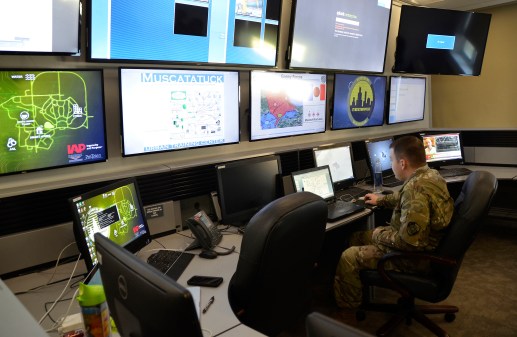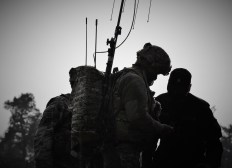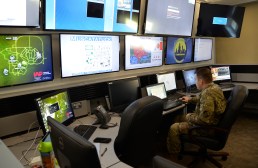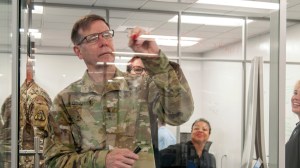Army Cyber Command is ‘evolving’ beyond cyber-operations
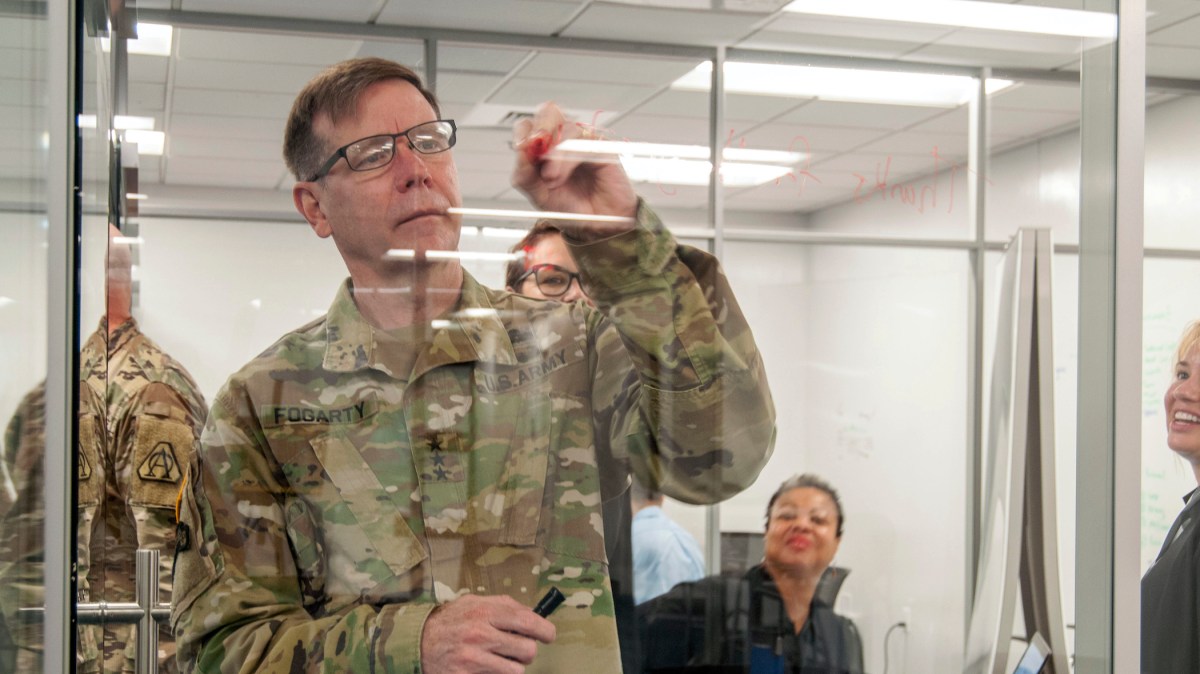
Army Cyber Command is expanding its mission to include more than just traditional cyber-operations, its commanding officer said Tuesday.
Cyber-operators will take on additional duties in “information advantage” and “decision dominance,” two areas where Cyber Command can help kinetic operations extend their impact, collect information to assist battlefield decisions and work to influence adversaries, Lt. Gen. Stephen Fogarty, Army Cyber Command’s leader, said during an Association of Old Crows webinar.
The evolution is part of a journey the command has been on spanning its decade of existence, including previous ideas to change its name to reflect its added emphasis on information operations. Fogarty added that the command will continue to evolve from simply defending DOD networks and improving the service’s cybersecurity to meet the changing electronic environment.
“Over the course of a year … we started to understand the problem is much greater than cyber,” Fogarty said.
He said the new direction for the command is “pre-decisional” and that the details of what exactly “information advantage” and “decision dominance” mean are still being worked out. The command recently published a redesign of its force to prepare for “information warfare.” The pivot to combating foreign influence operations and launching its own appear to be a part of the concept of information advantage the general outlined Tuesday.
Fogarty said the most immediate impact is the command’s new work will extend beyond the traditional boundaries of disrupting radio frequency signals, cybersecurity and working purely in an electronic environment.
“We talk about decision advantage, what we have evolved to now is decision dominance,” the general said.
The military has been talking up the need to make faster battlefield decisions through the fielding of new technology. It’s a goal Fogarty sees his command playing a critical role in. Part of how the command will achieve decision dominance is by obfuscating the Army’s moves through influence operations.
Fogarty spoke about how cyber-operations often have kinetic impacts in other domains that he now hopes his command can have the jurisdiction to further influence. The precise meaning around how cyber-operators might influence other domains has yet to be set, as the command continues to refine its doctrine, Fogarty said.
“I think here in the near term, [the doctrine] is going to come together for us,” he said.
The command also now has more physical space for its expanded operations, with a new headquarters in Georgia. The Army hopes the new space will increase recruitment and retention for its cyber teams.
